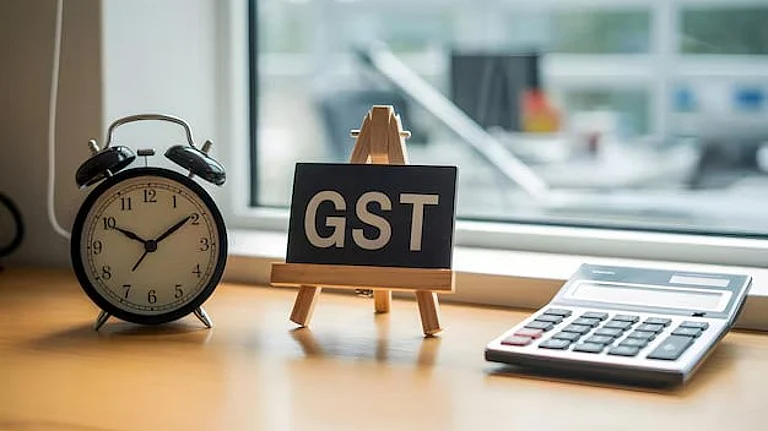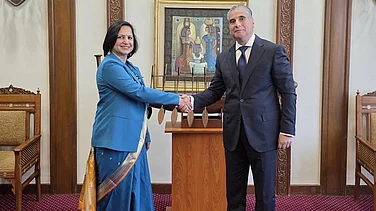
Finance ministers of eight opposition-ruled states met before the GST Council session to demand compensation for revenue loss from the planned GST rate rejig.
States like Jharkhand warned of big deficits (₹2,000 crore) if the 12% and 28% slabs are removed without compensation.
The Centre argues that lower rates will boost consumption and make up for revenue loss over time.
Finance ministers of opposition-ruled states on Wednesday met ahead of the crucial GST Council meeting, and decided to seek compensation for revenue loss incurred by all states following the implementation of GST rate rejig.
Eight opposition-ruled states -- Himachal Pradesh, Jharkhand, Karnataka, Kerala, Punjab, Tamil Nadu, Telangana and West Bengal-- had met last week to decide on how their revenues could be protected once the 12 and 28% slabs are removed.
Jharkhand Finance Minister Radha Krishna Kishore said his state will suffer a ₹2,000 crore revenue loss if the Centre's GST reform proposal of reducing the number of slabs is implemented.
"If the Centre agrees to compensate us for whatever loss we would incur, then we have no issues in approving the agenda before the Council. I don't think the issue will come up for voting, as in a federal structure, it is the responsibility of the Centre to compensate states for revenue loss," Kishore told reporters here after the meeting of opposition-ruled states.
These states have argued that the rejig in rates and abolition of slabs will lead to lower revenues. The Centre, however, is of the opinion that lower prices will boost consumption and mostly make up for any loss of revenue in the long run.
The 56th GST Council, chaired by Union Finance Minister Nirmala Sitharaman and comprising ministers from all states, will, over the next two days, discuss the Centre's 'next-gen' GST reform proposal of having just two tax rates of 5 and 18% by moving products from the current 12 and 28% slab to lower rates.
A special 40% rate has been proposed to be levied on a select few items. A 4-tier GST structure of 5, 12, 18 and 28% was implemented from July 1, 2017, when the Centre and states agreed to subsume most of their taxes, like excise duty and VAT, into one uniform tax.
A compensation cess in the range of 1 to 290% is levied on luxury and demerit goods to create a revenue pool for compensating states for the loss of revenue occurring from the exercise. The compensation mechanism was for the initial 5 years ending June 2022.
If the Council agrees to the Centre's GST reform proposal, Most of the common use food items like ghee, nuts, drinking water (20 litre), non-aerated drinks, namkeen, certain footwear and apparel, medicines and medical devices are likely to move from a 12% to a 5% tax slab.
Common use items, ranging from pencils, bicycles, umbrellas, to hairpins, may also move to a 5% slab. Prices of electronic items like a certain category of TV, washing machine and refrigerator are likely to fall because of being taxed at a lower rate of 18%, as against 28% currently.
Goods like automobiles that are currently charged at the highest slab of 28%, plus a compensation cess, may see differential rates, with entry-level cars being charged 18% rate, while SUVs and luxury ones being put in the special 40% rate.
The special 40% rate will also be for other demerit goods like tobacco, pan masala and cigarettes. There could also be an additional tax on top of this rate for this category.
Opposition states, like West Bengal, have demanded that any levy on top of the 40% rate should exclusively be for sharing with states to make up for their revenue losses.
The compensation cess mechanism was initially put in place for a 5-year period till June 30, 2022, to make up for the revenue loss suffered by states on account of GST implementation.
The levy of compensation cess was later extended by 4 years till March 31, 2026, and the collection is being used to repay the loan that the centre had taken to compensate states for the GST revenue loss during Covid period.
That loan repayment is going to be over by October-November, post which, compensation cess will cease to exist.
The 56th GST Council meeting has to decide a mechanism so that the incidence of tax on demerit and ultra-luxury goods remains the same even after the compensation cess levy ends.
































